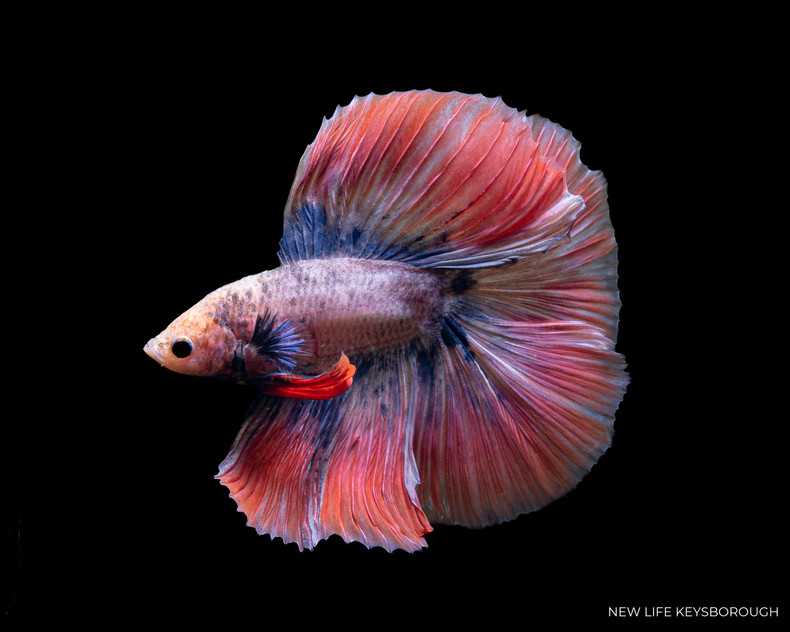The Betta, or Siamese Fighting Fish: A Vivid Burst of Life for Your Aquarium
G'day, future Betta keepers! Today, let's dive into the vibrant and dramatic world of the Betta fish, also known as the Siamese Fighting Fish. Renowned for their striking colours and flowing fins, these resilient little wonders are a perfect way to introduce yourself to the world of fishkeeping.
Setting Up Your Betta's Home
Bettas hail from the shallow, warm waters of Thailand, Cambodia, and Vietnam, inhabiting rice paddies, ponds, and slow-moving streams. They're labyrinth fish, meaning they have a special organ allowing them to breathe air at the water's surface, a trait developed for surviving in low-oxygen environments.
Although frequently marketed as capable of living in small bowls or vases, a Betta fish will be much happier and healthier in a minimum 15-litre tank with a heater and a filter. These amenities provide stable water conditions and mimic the gentle currents of their natural habitat. Add some live plants and hiding places with smooth surfaces, and your Betta will feel right at home!
Recommended Water Parameters
Bettas thrive in warm water, with a recommended temperature between 24°C to 27°C. They prefer slightly acidic to neutral water conditions, with a pH of 6.5 to 7.0. Regular water changes and monitoring are vital to prevent the build-up of waste and to keep your Betta fish happy and healthy.
Feeding Your Betta
Bettas are carnivores by nature. High-quality Betta pellets should make up the core of their diet. Still, this can be supplemented with occasional treats of live or frozen foods like daphnia, brine shrimp, and bloodworms. Feed them once or twice a day, providing only as much as they can eat in a few minutes to avoid overfeeding. We recommend the Ultra Fresh Betta Pro Shrimp Patties.
Choosing Suitable Tank Mates
As their common name implies, male Betta fish are territorial and will fight with other males, so they should be kept singly. Female Bettas can sometimes be kept in a group called a sorority, though this requires a larger tank and careful monitoring.
If you're considering adding other species to your Betta tank, choose peaceful, non-aggressive species that won't nip at your Betta's fins. Avoid any fish with bright colours and flowing fins as they can provoke the Betta's aggression. Good options can include Corydoras catfish, small tetras, and snails.
Remember, your Betta's wellbeing is the top priority, so always be prepared to rearrange your setup if any compatibility issues arise.
Closing Thoughts
Betta fish, with their vibrant colours and unique personalities, can make a fantastic addition to your home or office. They are hardy and low-maintenance, yet their care still requires attention and dedication. In return, you'll have a lively and interactive little companion to brighten up your days.
Keep up the good work, and happy fishkeeping, mates!

